 Torn between the modern charm of induction and the traditional flair of gas? You're not alone. The debate on induction vs gas cooking has sparked interest in every kitchen—whether you're a tech-savvy home chef or a lover of classic flame cooking.
Torn between the modern charm of induction and the traditional flair of gas? You're not alone. The debate on induction vs gas cooking has sparked interest in every kitchen—whether you're a tech-savvy home chef or a lover of classic flame cooking.
From performance and safety to energy efficiency and long-term cost, choosing between a gas stove vs induction cooktop isn’t just about aesthetics—it's about functionality, savings, and lifestyle.
At Cygen, we’re passionate about building smarter, more efficient, and future-ready kitchens powered by technology and thoughtful design.
In this blog, we’ll break down the induction vs gas pros and cons, explore the advantages of gas stove setups, analyse the disadvantages of induction cooking, and help you discover which is truly the best stove for home use based on your needs.
By the end, you’ll have a clear picture of:
-
The difference between induction and gas cooking
-
How they compare in terms of temperature control, energy consumption, and cookware compatibility
-
And which one suits your kitchen, cooking style, and budget the best
Let’s explore!
 What Is Induction Cooking
What Is Induction Cooking
When it comes to induction vs gas cooking, understanding how each technology works is the first step in choosing what suits your lifestyle best. Induction cooking uses electromagnetic heating to directly warm your cookware, skipping the step of heating a burner.
Induction cooktops are powered by electric currents that generate heat only when compatible cookware is placed on the surface. This precise temperature control in cooking translates into faster meals, minimal heat loss, and reduced energy bills — a true example of energy-efficient cooking.
It’s also a safer alternative for families, as the cooktop surface remains relatively cool to the touch, making it ideal for safety-first households. Because induction doesn’t rely on a flame or exposed coil, it's perfect for compact kitchens, modern layouts, and anyone prioritizing eco-friendly cooking solutions.
Plus, it pairs effortlessly with smart kitchen appliances, fitting right into a tech-forward lifestyle.
Curious to experience faster, safer, and smarter cooking? Explore Cygen’s range of modern induction cooktops designed for effortless everyday use.
 What Is Gas Cooking
What Is Gas Cooking
When it comes to the battle of induction vs gas cooking, gas has long been the trusted favorite in kitchens around the world. Known for its visible flame and immediate response, a gas stove gives you the kind of precise control that many chefs and home cooks swear by.
Unlike induction, which relies on electromagnetic heating, gas cooking uses an open flame, allowing you to visually judge the heat and adjust it instantly. This kind of temperature control in cooking is crucial for tasks like searing, stir-frying, or slow simmering.
Some advantages of gas cooking are:
-
Excellent temperature control: Easily adjust the flame for precise cooking, ideal for everything from boiling to slow simmering.
-
Better heat distribution: Open flame ensures even heating across cookware surfaces.
-
Compatible with all cookware: Unlike induction cooking technology, gas works with any pot or pan—no special base required.
-
Continues working during power cuts: Gas stoves don’t rely on electricity, making them dependable in all situations.
-
Cost-effective in many regions: Lower power consumption of stoves and cheaper cost of running induction vs gas over time.
-
Versatile for all cooking styles: Ideal for traditional vs modern cooking, especially when preparing multi-course meals.
If you're someone who loves traditional cooking, values hands-on control, and wants an appliance that's ready for heavy-duty use, gas might just be the best stove for home use. It’s a solid option for those who prioritize versatility, performance, and familiarity in the kitchen.
 Induction vs Gas Cooking: Comparison
Induction vs Gas Cooking: Comparison
When it comes to induction vs gas cooking, understanding the key differences can help you make an informed decision. Whether you're evaluating gas vs induction stove for energy savings, speed, or safety, this side-by-side chart highlights the pros and cons of each to suit your lifestyle and kitchen needs.
|
Feature |
Induction Cooktop |
Gas Stove |
|
Heat Control |
Precise digital control for consistent temperature control in cooking |
Manual flame control with visual feedback |
|
Cooking Speed |
Very fast—ideal for quick meals and efficient prep |
Moderate; takes longer to heat cookware |
|
Energy Efficiency |
High—energy-efficient cooking with minimal heat loss |
Lower due to open flame cooking |
|
Cookware Needed |
Needs compatible cookware for induction |
Works with all cookware types |
|
Safety |
Extremely safe—cool surface and no open flame |
Safety in induction vs gas favors induction due to flame risks |
|
Maintenance |
Easy to clean—flat glass surface |
Requires regular cleaning of burners and grates |
|
Installation |
Simple electric setup; no gas line needed |
Needs proper gas line installation |
|
Eco-Friendliness |
Supports eco-friendly cooking solutions |
Burns fossil fuels—less environmentally friendly |
|
Smart Features |
Integrates with smart kitchen appliances |
Traditional setup—fewer smart functions |
|
Power Consumption |
Efficient power consumption of stoves when used correctly |
Gas-dependent; can vary based on usage |
Induction stoves are great for modern, energy-efficient homes, while gas stoves offer better control and can be more cost-effective. The right choice depends on your cooking style, budget, and energy access.
Still weighing the pros and cons of gas vs induction stove? Discover how Cygen’s induction stoves blend style, safety, and performance for the modern Indian kitchen.
 Pros & Cons: Induction vs Gas Cooking
Pros & Cons: Induction vs Gas Cooking
When it comes to induction vs gas cooking, the debate revolves around speed, safety, energy efficiency, and overall convenience.
If you're wondering “Induction or gas – which is better?”, here’s a quick breakdown of the induction vs gas pros and cons to help you decide which one suits your kitchen needs and lifestyle best.
Pros of Induction Cooking
-
Quicker meals thanks to electromagnetic heating and faster heat distribution.
-
Safer for kids and elders, with no open flame cooking or exposed heat elements.
-
Sleek, modern aesthetics that blend well with smart kitchen appliances.
-
Energy-efficient cooking makes it a sustainable and eco-friendly choice.
-
Precise temperature control in cooking for better results.
Cons of Induction Cooking
-
Higher initial cost, especially with smart induction models.
-
Limited cookware compatibility – you’ll need pans suited for induction cooking technology.
-
Needs electricity to function, so during power outages, cooking can be disrupted.
-
Disadvantages of induction cooking may include a learning curve for those used to traditional methods.
Pros of Gas Cooking
-
Traditional vs modern cooking preference—gas offers a familiar, hands-on experience.
-
Better control over flame and heat, ideal for delicate or traditional dishes.
-
Works even during power cuts, ensuring uninterrupted meal prep.
-
Gas cooking benefits include compatibility with all cookware types.
-
Best stove for home use in areas with an unstable electricity supply.
Cons of Gas Cooking
-
Lower gas stove efficiency compared to induction.
-
Open flame cooking poses safety risks, especially around kids.
-
Cleaning burners can be tedious.
-
Power consumption of stoves using gas may vary, but they can be less eco-conscious than induction.
Choosing between induction vs gas cooking depends on your lifestyle and kitchen needs. If you want energy-efficient cooking and modern tech, go with induction.
 Energy Efficiency & Cost Comparison
Energy Efficiency & Cost Comparison
When it comes to induction vs gas cooking, energy efficiency plays a key role in deciding which is better for your home. While gas vs induction stoves have their own pros and cons, induction cooktops are generally more energy-efficient due to minimal heat loss and faster cooking times.
Induction cooking technology uses electromagnetic heating, which directly heats compatible cookware, ensuring precise temperature control in cooking and reduced energy wastage.
This makes it ideal for those looking for eco-friendly cooking solutions and long-term savings on electricity. On the other hand, gas stoves are often seen as the best stove for home use due to their open flame cooking, reliability during power outages, and gas cooking benefits like visual flame control.
However, they have lower gas stove efficiency compared to induction, with more heat lost to the surroundings.
From a cost standpoint:
-
Gas stoves are cheaper to purchase and install upfront.
-
Induction cooktops, while costlier initially, offer savings over time thanks to quicker cooking times and lower power consumption of stoves.
At Cygen, we recommend making a choice based on your household’s specific needs. Consider your cooking frequency, local gas and electricity tariffs, and whether you prioritize traditional vs modern cooking methods.
For a more sustainable and high-performance kitchen, smart kitchen appliances like induction cooktops are worth the investment.
 Induction vs Gas: Which One Is Right For You?
Induction vs Gas: Which One Is Right For You?
Choosing between induction vs gas cooking ultimately depends on your lifestyle, priorities, and kitchen setup. Here's a quick breakdown of who benefits most from each option, so you can decide whether induction or gas is better for your daily needs.
Busy Working Couples → Induction
If you're always on the go and value speed and convenience, cooking with induction is ideal. The precise temperature control, rapid heating, and low maintenance make induction cooktops a time-saving solution.
Plus, their sleek design fits perfectly into modern smart kitchen appliance setups.
Large Families Cooking Traditional Meals → Gas
For families preparing multiple meals a day or cooking over longer durations, gas stove efficiency shines. The open flame cooking allows better visual heat control, ideal for dishes that need slow cooking or frequent stirring. It's also compatible with all types of cookware, reducing hassle.
Eco-Conscious Consumers → Induction
If you're focused on energy-efficient cooking and lowering your carbon footprint, induction is the way to go. With minimal heat loss, reduced power consumption, and no direct emissions, it supports eco-friendly cooking solutions without compromising on performance.
Rural or Less Electrified Areas → Gas
In areas with unreliable electricity, gas stoves are more dependable. They don't rely on power supply, making them perfect for traditional vs modern cooking environments where consistency and simplicity matter.
This is especially useful where induction cooking technology may not be fully accessible.
Still unsure? Consider your kitchen habits, available energy sources, and whether you prefer the reliability of gas or the innovation of induction. Our experts at Cygen can help you find the right balance for your kitchen needs.
 What Cygen Recommends For You?
What Cygen Recommends For You?
At Cygen, we understand that the debate around induction vs gas cooking isn’t just about energy or efficiency—it’s about your lifestyle, cooking habits, and future-readiness. As a trusted name in smart kitchen innovation, our goal is to help you make the most informed, practical, and future-proof choice.
For many modern households, a hybrid setup—combining both an induction cooktop and a gas burner—offers the best of both worlds.
This way, you get the advantages of gas stove cooking when you need flame control for traditional meals, and the benefits of induction cooking technology for fast, safe, and energy-efficient cooking on busy days.
Whether you're upgrading your entire kitchen or just one appliance, Cygen’s smart kitchen appliances are designed to align with your unique needs.
From compact induction cooktops with advanced features to durable, high-performance gas stoves, our solutions blend performance with modern design and safety.
Tips from Cygen Experts:
-
If your priority is speed, safety, and low maintenance, go for induction.
-
If you cook a variety of traditional dishes daily, choose gas.
-
For maximum flexibility, opt for a dual-fuel or hybrid solution.
Explore Cygen’s smart kitchen solutions to make cooking faster, safer, and more enjoyable.
Conclusion
When it comes to induction vs gas cooking, there’s no universal winner—it truly depends on your lifestyle, cooking habits, and kitchen setup. If you prioritize speed, energy-efficient cooking, and safety, induction cooktops powered by electromagnetic heating might be your best bet.
On the other hand, if you value flame control, wider cookware compatibility, and the advantages of a gas stove, then the traditional gas stove vs induction cooktop debate might swing in favor of gas.
Both options have their merits and limitations—from the cost of running induction vs gas, to temperature control in cooking and long-term convenience. While induction delivers sleek, eco-friendly cooking solutions, gas remains a trusted ally in traditional vs modern cooking needs.
At Cygen, we believe in smarter choices, not just trendy ones. Whether you're upgrading to a smart kitchen appliance or choosing the best stove for home use, our expert insights and curated solutions help you find the perfect balance between style, performance, and safety.
Ready to upgrade to smart, clean, and quick cooking? Shop Cygen induction cooktops and bring innovation to your kitchen.
Frequently Asked Questions
Q1. Is induction cooking cheaper than gas?
Induction cooking can be more cost-effective in the long run due to better energy-efficient cooking and lower power consumption of stoves. While gas stoves are cheaper to install initially, the cost of running induction vs gas favors induction in many urban households with reliable electricity and rising gas prices.
Q2. Can I use all types of pans on induction cooktops?
No. Induction cooking technology requires cookware with a magnetic base. That means aluminum, copper, or glass pots won’t work unless they have a compatible layer. Compatible cookware for induction includes stainless steel and cast iron.
Q3. Which is more durable – gas stove or induction cooktop?
Both are durable, but in different ways. Gas stoves tend to last longer under heavy-duty use and are easier to repair. Induction cooktops have fewer moving parts, but their glass tops can be prone to scratches or cracks. In the induction vs gas pros and cons list, gas wins for ruggedness, while induction wins for modern design.
Q4. Is induction cooking healthy and safe?
Yes, induction cooking is very safe. There’s no open flame cooking, reducing fire hazards. The cooktop stays cool to the touch, making it safer for children and the elderly. Plus, it produces less indoor air pollution compared to gas stove setups.
Q5. What does Cygen recommend for modern Indian homes?
At Cygen, we recommend a smart blend. For urban homes prioritizing eco-friendly cooking solutions, induction cooktops offer speed, safety, and style. For traditional households valuing control and versatility, gas cooking benefits still shine. Choose based on your cooking needs, energy availability, and lifestyle goals.



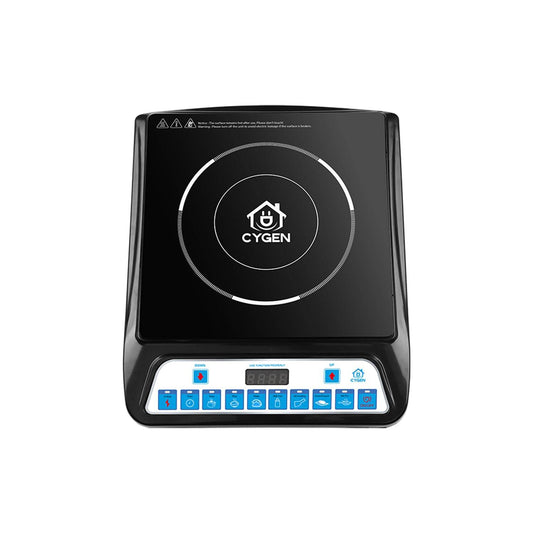
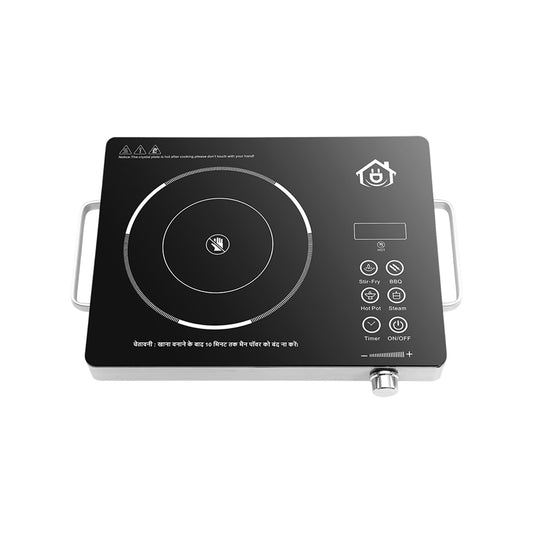
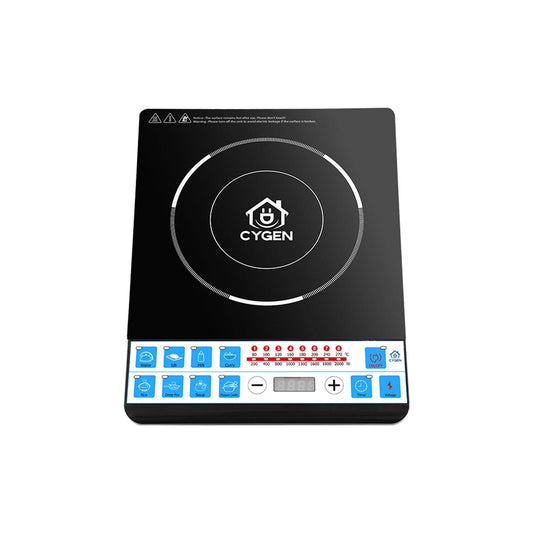
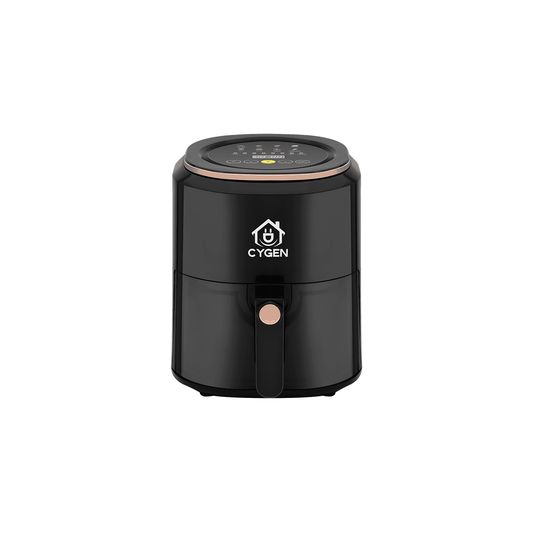
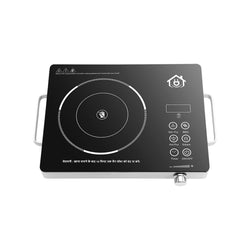
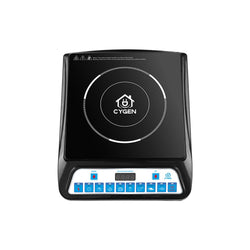
Leave a Reply
Nunc vehicula quam semper odio varius tincidunt. Vestibulum ante ipsum primis in faucibus orci luctus et ultrices posue.
Please note, comments need to be approved before they are published.